Batasuna was a Basque nationalist political party. Based mainly in Spain, it was banned in 2003, after a court ruling declared proven that the party was financing ETA with public money.

Basque nationalism is a form of nationalism that asserts that Basques, an ethnic group indigenous to the western Pyrenees, are a nation and promotes the political unity of the Basques, today scattered between Spain and France. Since its inception in the late 19th century, Basque nationalism has included Basque independence movements.

ETA political-military (Spanish: ETA político-militar, Basque: ETA politiko-militarra) or ETA (pm) was the majority faction of the Basque revolutionary armed organization ETA who, during Spain's transition to democracy, opted for a double legged structure, political on the one side and military on the other, while ETA militarra or ETA(m) adopted a military-only structure with its constituent divisions detaching into new self-standing organizations (LAB in 1974, etc.).

Euskadiko Ezkerra was a Basque socialist political organisation. It was founded as a coalition of Euskal Iraultzarako Alderdia and other Basque Marxist forces in 1977 to present lists for the Spanish general elections in the constituencies of Biscay, Gipuzkoa and Álava, while Navarrese Left Union (UNAI), an allied coalition, was to present a list in the constituency of Navarre.
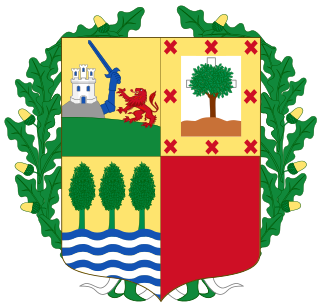
Euskal Ezkerra was a political party in Euskadi, Spain. EuE was formed as break-away from Euskadiko Ezkerra in 1993 when EuE merged with Spanish Socialist Workers' Party.
Communist Movement of Euskadi was originally the branch of the Communist Movement (MC) in Basque Country and Navarre, Spain. EMK was previously known as ETA Berri, a splinter group of ETA. EMK separated itself from MC in 1983. In 1991 EMK merged with LKI and formed Zutik in Basque Country. In Navarre EMK took part in forming Batzarre. Some of its most prominent leaders were Patxi Iturrioz, Eugenio del Río, Rosa Olivares Txertudi, Milagros Rubio, Jesús Urra Bidaurre and the brothers Javier and Ignacio Álvarez Dorronsoro.
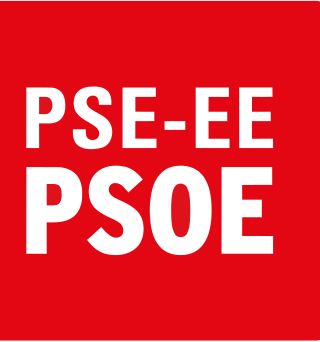
The Socialist Party of the Basque Country–Basque Country Left is a social-democratic political party in the Basque Country that acts as the regional affiliate of the Spanish Socialist Workers' Party (PSOE).
Batzarre is a political party in Navarre, Spain. It has a branch in the Basque Autonomous Community known as Zutik. It bids to win the political space to the left of the Basque nationalists and the Spanish socialists, the latter eroded for their long-running collusion with the conservative UPN government. It formed on 29 January 2011 the coalition Izquierda-Ezkerra along with Izquierda Unida de Navarra (IUN) and local Socialist figures disillusioned with the party's regional alliances.
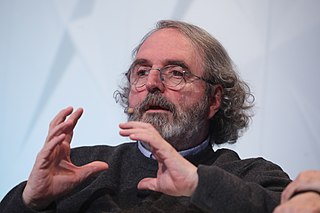
Jon Juaristi Linacero is a Spanish poet, essayist and translator in Spanish and Basque, as well as a self-confessed former ETA militant. He lives in Madrid.

Gotzone Mora is a Spanish social-democratic politician. She was a member of the Basque Socialist Party till March 2008 when she was expelled from it for advocating support for the People's Party. Since 2008 she has been a member of the People's Party .
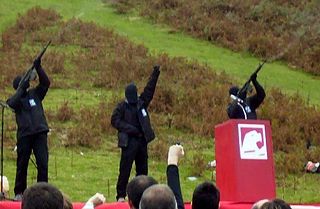
The Basque conflict, also known as the Spain–ETA conflict, was an armed and political conflict from 1959 to 2011 between Spain and the Basque National Liberation Movement, a group of social and political Basque organizations which sought independence from Spain and France. The movement was built around the separatist organization ETA, which had launched a campaign of attacks against Spanish administrations since 1959. ETA had been proscribed as a terrorist organization by the Spanish, British, French and American authorities at different moments. The conflict took place mostly on Spanish soil, although to a smaller degree it was also present in France, which was primarily used as a safe haven by ETA members. It was the longest running violent conflict in modern Western Europe. It has been sometimes referred to as "Europe's longest war".

The 1980 Ispaster attack was a gun and grenade attack by the Basque separatist organisation ETA which occurred on 1 February 1980 near the Basque town of Ispaster. The targets were a convoy of civil guards who were escorting workers and weapons from the nearby Esperanza y Cia Arms factory to Bilbao. A total of six civil guards were killed, while two ETA members were killed by hand grenades that they had thrown. The attack was the deadliest of 1980, the year when ETA killed more people than any other.
The September 1982 Rentería attack was an ambush by the Basque separatist organisation ETA which occurred on 14 September 1982 on the motorway near the Basque town of Errenteria in Guipuzkoa. The targets were several national police officers, four of whom were killed in the attack, with the fifth seriously injured. The attack was ETA's deadliest of 1982.

Eusko Alkartasuna is a Basque nationalist and social-democratic political party operating in Spain and France. The Basque language name means Basque Solidarity and abbreviated as EA. The party describes itself as a "Basque nationalist, democratic, popular, progressive and non-denominational party". The party has adopted the slogan "Euskal Sozialdemokrazia".
Navarrese Left Union, better known by its acronym UNAI was an electoral coalition formed in 1977 to present a list in the first democratic elections in Spain since 1936 in the constituency of Navarre. UNAI was the sister coalition of Euskadiko Ezkerra, that presented lists in Gipuzkoa, Araba and Bizkaia.
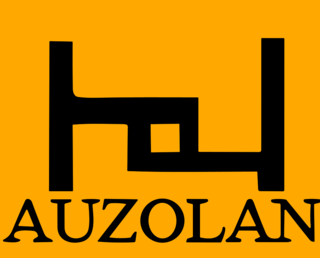
Auzolan was a political coalition in the Southern Basque Country, created on 26 March 1983. It was a coalition between the Liga Komunista Iraultzailea (LKI), Langile Abertzale Iraultzaileen Alderdia and Nueva Izquierda, and had the support of the Communist Movement of Euskadi (EMK). The spokesperson of Auzolan was Bixente Serrano Izko.
The Alianza Apostólica Anticomunista was a Spanish far-right paramilitary organisation active from 1976 to 1983, primarily in the southern Basque Country but also in the French Basque Country and Barcelona. A June 2010 report by the Office for Victims of Terrorism of the Basque Government attributed eight murders with 66 deathly victims to the group and linked it to the National Police Corps, SECED and the Civil Guard. The group attacked the satirical magazine El Papus in Barcelona, killing one person and injuring 17.
Mikel Ángel Unzalu Hermosa was a Spanish politician. A member of the Socialist Party of the Basque Country–Basque Country Left (PSE-EE), he served as Secretary-General of Euskadiko Ezkerra from 1984 to 1991 and was in the Basque Parliament from 2009 to 2016.











